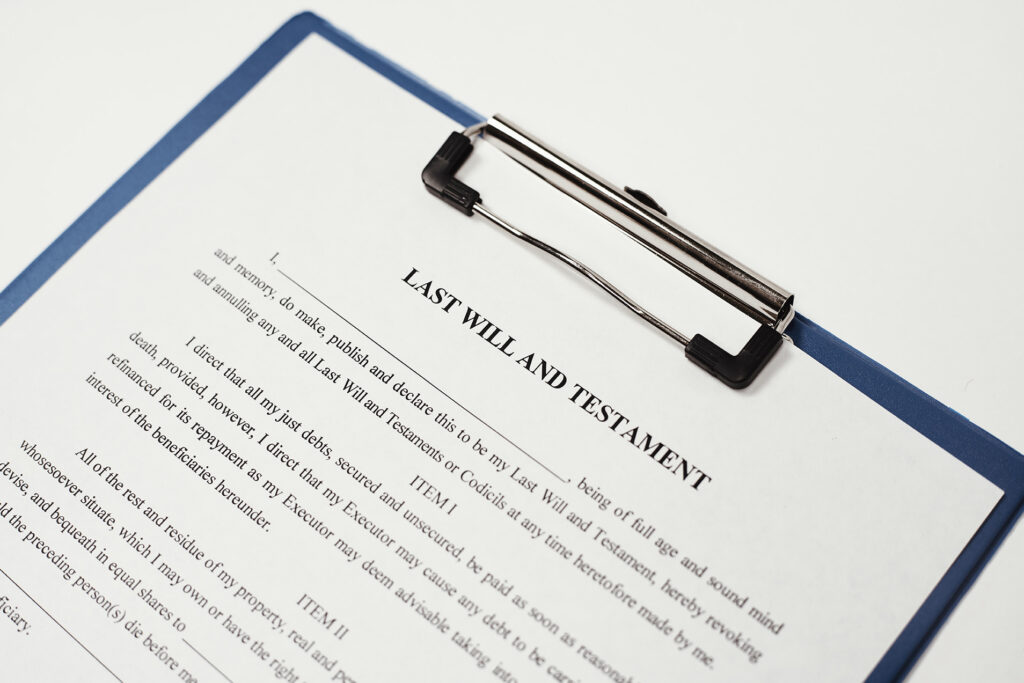Jump to a Topic
Is Probate Required in New Jersey?
How Do You Avoid Probate in New Jersey?
Can an Executor of an Estate in New Jersey be Compensated?
How Much Does an Executor in New Jersey Get Paid?
How Long Does Probate in New Jersey Take?
Do All Estates Have to Go Through Probate in New Jersey?
Does a Will Have to Be Probated in New Jersey?
What is an Estate Tax Return?
Is There a Federal Estate Tax in New Jersey?
Settling an Estate in New Jersey
How Long Do You Have to File Probate After a Death in New Jersey?
Probate Court in New Jersey
Probate Code in New Jersey
When a loved one dies, the remaining family members have the task of making sure the estate is taken care of. The assets need to go to the heirs and debts must be paid. Even though you’re still grieving, these tasks must be taken care of in a timely manner.
The legal process for dealing with an estate of a deceased person is known as probate. If you’re involved in this kind of situation, you should understand the basics of probate and how it works in New Jersey.

Is Probate Required in New Jersey?
Probate is usually required for estates in New Jersey. However, small estates may have the option of an informal probate process, which takes less time and is less complicated than formal probate. If an asset is owned jointly by two or more people, probate isn’t necessary because it automatically goes to the surviving owner. If an estate is valued at less than $20,000, it may go through a simplified probate process.
How Do You Avoid Probate in New Jersey?
While most estates will need to go through probate, it is possible to avoid it if you plan ahead. The best way to keep an estate out of probate is to put it in a revocable living trust. When all the assets of an estate are in a trust, they go to the beneficiary when the person dies without going through probate.
Certain assets may not have to go through probate if they have a named beneficiary or if they are transferable on death to someone. Examples of this type of asset include life insurance policies, checking accounts and retirement accounts.
Can an Executor of an Estate in New Jersey be Compensated?
New Jersey law allows for the executor or administrator to be compensated for their time. They may also receive reimbursement for any allowable expenses that the executor had while doing their job.

How Much Does an Executor in New Jersey Get Paid?
New Jersey law allows the executor or administrator to receive a percentage of any interest earned on the assets held in the estate. They may also receive a percentage of the total value of the assets in the estate.
Their payment is a graduated percentage, which means it reduces as the value of the estate grows, according to New Jersey Revised Statutes 3B:18-14. They can claim up to five percent for the first $200,000 and 3.5 percent for the value over $200,000 but under $1 million. Anything over $1 million, they would receive two percent.
How Long Does Probate in New Jersey Take?
The timeline for probate in New Jersey can vary. It depends on the size of the estate and whether anyone contests the will. There are several deadlines that must be followed, which means probate cannot be closed until after all the steps are completed. In most cases, probate will be completed in less than a year. For large estates or those with complications, it can take much longer.
Do All Estates Have to Go Through Probate in New Jersey?
Most estates must be probated in New Jersey. However, there are exceptions. If the estate is part of a living trust, probate won’t be necessary. If all assets have a named beneficiary, they will automatically receive them without the need for probate. Small estates may go through informal probate, which means an affidavit is filed with the court. No hearing is necessary in this process.

Does a Will Have to Be Probated in New Jersey?
Yes, a will must be entered into court records anytime someone dies. Even if the estate doesn’t need to go through probate, the will must be filed. The court may determine if it is valid and will handle any contests against the will.
What is an Estate Tax Return?
As of January 2018, New Jersey no longer collects estate tax. Prior to the change, the estate administrator would have to file a New Jersey estate tax return for high-value estates. The estate of the deceased who died prior to the change may still need to file an estate tax return.
Is There a Federal Estate Tax in New Jersey?
Whether or not an estate tax return is required, federal estate tax must be considered. Federal estate tax is imposed on high-value estates. When a person dies, this tax may be imposed on the ‘gross estate’ which includes the fair market value of real estate, cash and securities, trusts, annuities, insurance, and other assets.
Settling an Estate in New Jersey
Settling an estate in New Jersey is similar to what happens in any other state. However, there are differences between deadlines and other details. It’s important that you know how probate works for this state to ensure you meet all timelines and requirements.
- A petition to open probate is filed with the court. At this time, a person may request to be the executor or personal representative for the estate.
- The court approves the executor or names someone if no one was listed in the will or is unable or unwilling to act as the executor. They are given letters testamentary to show they have the authority to act on behalf of the estate.
- The executor takes inventory of the assets of the estate and secures them. They may have assets be appraised if needed.
- The executor publishes notice of the estate in probate for creditors. They will pay any debts for the estate.
- The executor must file tax returns and pay any taxes owed.
- The remaining assets are distributed to the heirs and ownership is transferred.
While these are the basic steps, the timelines are important to follow. If there are any complications or if the executor has questions about their duties, they can seek out an estate attorney to help them.
How Long Do You Have to File Probate After a Death in New Jersey?
According to the law in New Jersey, probate cannot be filed until ten days after the person’s death. While there isn’t a deadline for filing, it is generally expected that probate be filed in a timely manner, allowing for issues in locating a will or other delays.
Probate Court in New Jersey
Generally, probate in New Jersey is handled by the Surrogate’s Court. However, in contested cases, the Superior Court, Chancery Division, Probate Part handles the case.
Probate Code in New Jersey
Probate laws are part of the New Jersey Revised Statutes, chapter 3B. This chapter details all of the requirements and steps to follow. Portions of the code can be found in a search online with the state website: N.J. Legislative Statutes (state.nj.us).

